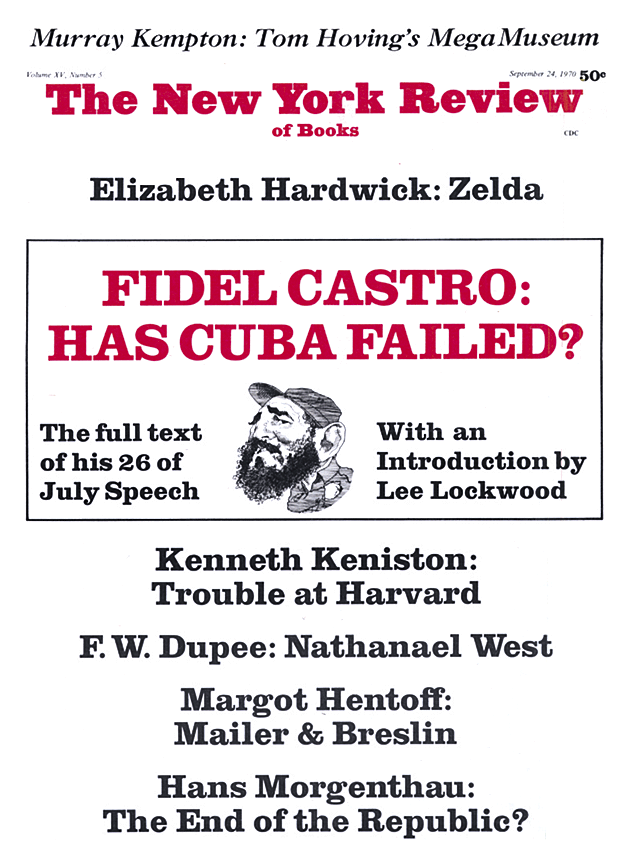To the Editors:
In October, 1968, a group of citizens were concerned about the Eighth Amendment rights of Eldridge Cleaver, author of Soul on Ice and a Black Panther official. His parole had been revoked because of his political associations. Thousands of dollars were needed to pay for legal expenses.
An ad hoc committee was formed and on November 20, 1968, an advertisement was placed in The New York Times requesting funds to defray legal costs and asking that letters and telegrams be sent to the California Adult Authority (Parole Board) demanding continuation of Cleaver’s parole and an end to his harassment. This ad was signed by some 140 people, most of whom are prominent in the field of writing and publishing.
A special account was opened for the committee by Sandra Levinson and Nathan H. Schwerner into which all funds received were deposited. Three withdrawals were made: (1) payment for the ad; (2) a small amount to pay for postage and stationery; (3) a check to Cleaver’s attorney. Several hundred dollars still remain on deposit.
One year later, subpoenas were served on Miss Levinson and Mr. Schwerner to appear before a Federal Grand Jury in Philadelphia, Pennsylvania, with all books and records relating to the ad hoc committee. The subpoenas vaguely spoke of “possible violations” of mail-fraud statutes.
Legal assistance was sought and the National Emergency Civil Liberties Committee agreed to challenge the subpoenas on the basis of infringement of First Amendment rights. A Philadelphia attorney was needed and Leonard Boudin, General Counsel of NECLC, arranged with Henry W. Sawyer III to become the attorney of record for Levinson and Schwerner in this NECLC test case.
A stay was obtained while the issue of whether Mr. Schwerner and Miss Levinson must appear and provide records was litigated. The first legal round resulted in a major victory: the names of contributors would not have to be disclosed even if the two must ultimately appear. Thereupon, all records of receipts and disbursements (except names of contributors) were offered to the US attorney in lieu of appearance before the grand jury. This was refused.
An injunction proceeding was brought to test the constitutionality of the issuance of the subpoenas on the ground that since First Amendment rights were directly involved, the government must show probable cause for believing that crime had been committed. Throughout all the proceedings the US attorney has refused to indicate the basis for such belief although repeatedly asked by counsel and by judges before whom arguments were held. That issue is now before the Federal Court of Appeals in Philadelphia.
During this current period grand jury investigations are being broadly used, often to override First Amendment rights. Therefore, this challenge is of utmost importance. It can set historic precedent in limiting the scope of grand jury proceedings in cases involving the right to publicly support issues or people without government intrusion.
Help is needed to publicize this case and to defray legal expenses.
Cyrilly Abels
Aaron Asher
Jules Feiffer
Joseph Heller
Lawrence Hill
John Simon
Mark Stone
Arthur Wang
José Yglesias
(Make checks payable to the NECLC Legal Defense Fund for the Levinson/Schwerner Case. In care of the National Emergency Civil Liberties Committee, 25 East 26th Street (Room 913), New York, NY 10010. For further information phone Nathan H. Schwerner at (212) 683-8120.)
This Issue
September 24, 1970


